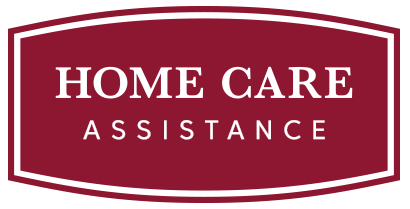5 Ways Education Can Lower Hospital Readmissions

Before your senior loved one gets discharged from the hospital, the nurse or physician will provide discharge instructions. This type of education not only prepares your loved one to go home but may also reduce the risk of hospital readmissions. The better informed and educated your loved one is upon discharge, the less likely he or she will be to get readmitted. Here are some ways education can lower hospital readmissions.
1. Incision Care
It’s essential that surgical wound care education is provided prior to hospital discharge. If your loved one had a procedure such as hip, cardiac, or knee replacement surgery, he or she will need to know how to care for the surgical incision after discharge. Improper wound care may result in slow healing or wound infection.
Professional caregivers can be a wonderful source of information and support for seniors who are recovering after being hospitalized. When searching for reliable Dallas homecare agencies, families want to know their senior loved ones will be well taken care of. At Home Care Assistance, our expertly trained caregivers are available around the clock to assist with tasks around the house, provide transportation to medical appointments and social events, and much more.
2. Injection Administration
Many people are prescribed new medications in the hospital. If your loved one was newly diagnosed with diabetes, he or she may have been prescribed insulin. The nurse educator will demonstrate how to self-administer insulin so when your loved one goes home, he or she can properly administer the medication independently. Medication administration education lowers hospital readmissions by reducing the risk of improper injection techniques, incorrect dosages, tissue damage, and skin infections.
3. Monitoring for Signs of Infection
The discharge educator will discuss various signs of infection associated with specific body systems. For example, if the nurse educator is teaching your loved one about signs and symptoms of a urinary tract infection, your loved one will learn that urinary burning, pelvic pain, urinary frequency, urinary urgency, cloudy urine, chills, and bloody urine are common signs of a urinary tract infection. Your loved one will also be instructed that if signs of infection develop, the physician should be notified at once. When infections are recognized and treated promptly, the risk of hospital readmissions is reduced.
Some seniors only require help with a few daily tasks so they can maintain their independence. However, those living with serious illnesses may need more extensive assistance. Luckily, there is professional live-in care Dallas, Texas, seniors can rely on. Home can be a safer and more comfortable place for your loved one to live with the help of an expertly trained and dedicated live-in caregiver.
4. Follow-Up Information
During the hospital discharge teaching session, your loved one will be instructed to follow up with the physicians who were involved in his or her direct care during the hospitalization. Keeping follow-up appointments with the doctors can prevent hospital readmissions because they allow the physicians to recognize and treat any new complaints before they progress into major illnesses.
5. Watching for Medication Side Effects
Side effects of prescription medications can make your loved one very sick. If your loved one knows which side effects to look out for, he or she will know to call the doctor at the first sign of a reaction. When the healthcare provider is notified about medication side effects in a timely manner, he or she can discontinue the offending medication before your loved one experiences serious adverse reactions that may necessitate hospital readmission.
Dallas senior care experts are available to provide high-quality care to seniors on an as-needed basis. From assistance with mobility and exercise to providing transportation to the doctor’s office and social events, there are a variety of ways professional caregivers can help your aging loved one continue to live independently. To hire a dedicated caregiver, call Home Care Assistance at (214) 363-3400 today.

